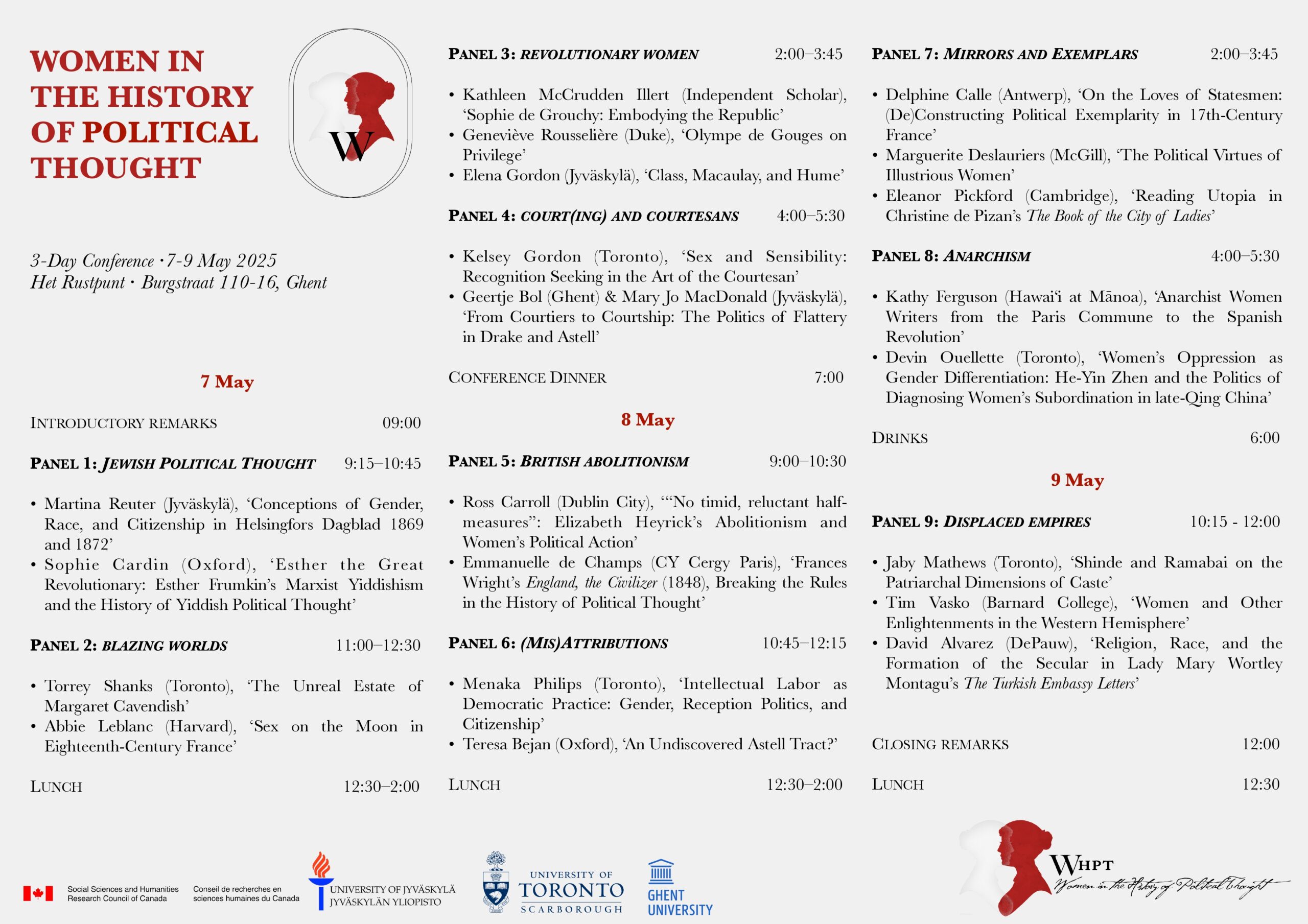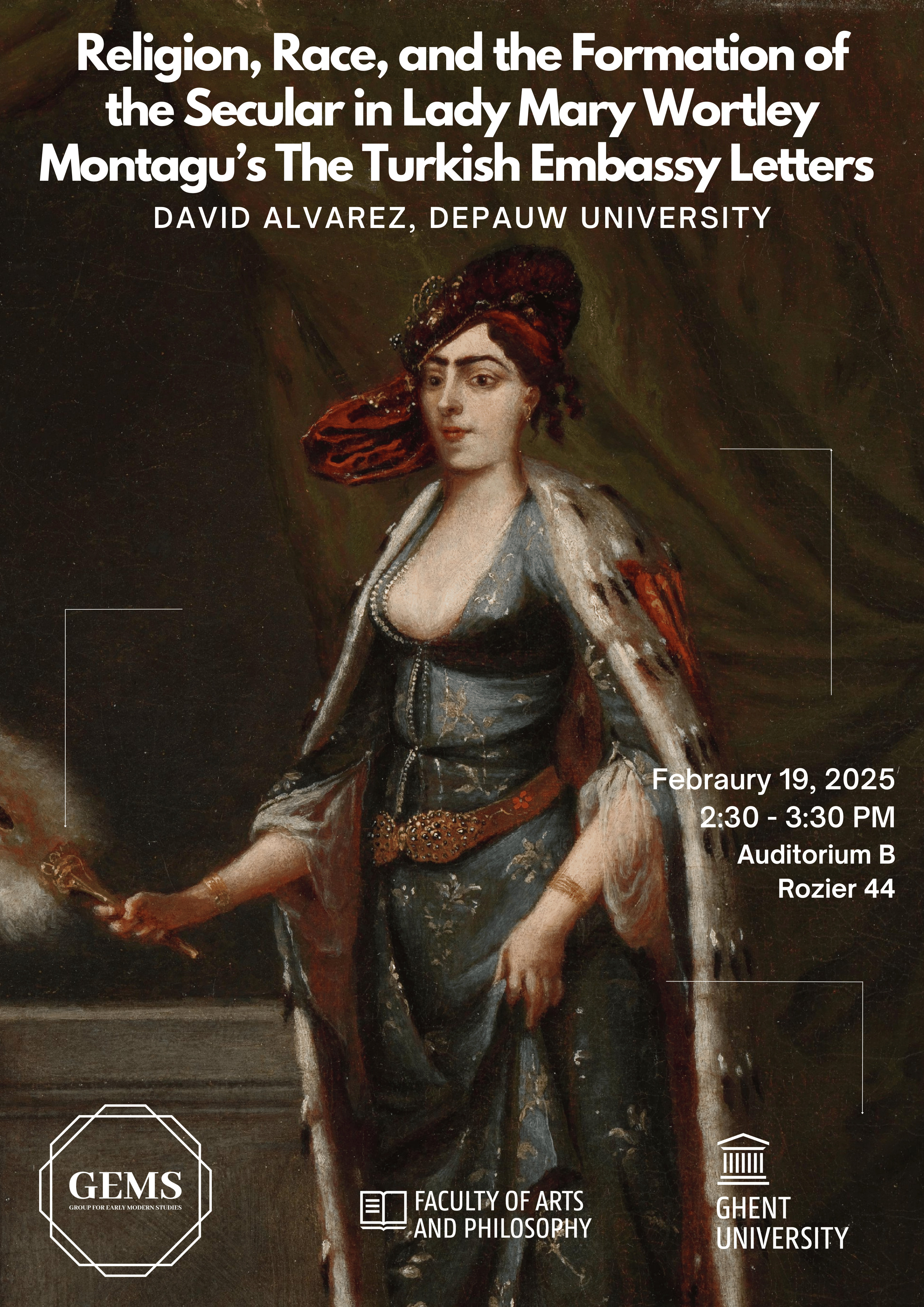GEMS is organising a talk by Dr. Elena Bilancia on ‘New Research Perspectives on Italian Vernacular Rhetorics of the 16th Century’.
The development of vernacular rhetorical theory played a key role in the intellectual culture of the Italian and European Renaissance. During the 16th century, the growing need to establish an autonomous set of rhetorical principles, crafted by (and for) literary professionals rather than university professors, extended beyond humanistic pedagogy and the formation of the ideal vir bonus dicendi peritus. It also addressed the changing role of intellectuals and their evolving relationship with cultural, political, and religious institutions, especially in the turbulent period between the end of the Italian Wars and the onset of the Counter-Reformation. Italian intellectuals made an original contribution to rhetorical theory not only through their exegetical work on ancient texts but also by exploring the potential of the vernacular language in the extra-university cultural circuits. It was particularly within the Infiammati Academy of Padua that a defence of the practical and civic function of elocutio was elaborated. The objective of Elena Bilancia’s research is therefore to identify the specific cultural projects that contributed to the foundation of an Italian vernacular rhetoric within the complex framework of European humanisms.
Elena Bilancia obtained her PhD in Philology and in Italian Studies from the universities of Naples Federico II and Paris 8 Vincennes – Saint-Denis. She is currently a research fellow at the Scuola Superiore Meridionale and a contract lecturer in Italian Literature at the Department of Humanities at Federico II. Her research interests focus on vernacular dialogue production and Renaissance lyric poetry. She has worked on authors such as Boccaccio, Machiavelli, and Torquato Tasso. In 2024, she published the monograph Il dialogo in volgare. Forme dell’argomentazione retorica nel XVI secolo with Bit&s.
GEMS is organising a talk by Dr. Jonathan Schiesaro on ‘Debating Private Censorship and Family Networks from Florence to Flanders: Lodovico Guicciardini’s Letters and the Publication of Francesco Guicciardini’s “Ricordi”’.
This talk explores the epistolary and editorial activity of Lodovico Guicciardini (1521-1589) between the events surrounding the publication of the first edition of Francesco Guicciardini’s History of Italy (1561), edited by Lodovico’s cousin Agnolo di Girolamo (1525-1581), and the Antwerp edition of the Ricordi (1585). Through a close reading of his correspondence and early printed materials within the Flemish context, the talk examines how private censorship and family networks shaped the reception of Italian historical culture and political thought on the periphery of the Counter-Reformation.
Jonathan Schiesaro (PhD, University of Zurich) is a research fellow of the Irish Research Council at Trinity College Dublin, where he works on a project focused on the transmission and manipulation of documentary heritage within Florentine patrician families (including the Vasari, Bandinelli, Buonarroti, Machiavelli, Guicciardini, and Ammirato) under the early Grand Dukes of Tuscany. His main research interests include Renaissance art treatises, memory writing, and historiography. He published the monograph Baccio Bandinelli e le anatomie degli scartafacci: il “Libro del disegno”, l’archivio di famiglia e la questione del “Memoriale” (Berlin: De Gruyter, 2023).
This interdisciplinary roundtable will explore the rich and varied afterlives of eighteenth- and nineteenth-century literature in contemporary media, culture, and criticism. A panel of leading scholars in literary studies will delve into how historical figures and forms—from seafaring pirates and biting satirists to queer protagonists and Enlightenment thinkers—continue to shape cultural narratives today. Our discussion will examine the reimagining of early modern tropes in contemporary literature, film, and television; the resonances of eighteenth-century satire in postcolonial thought; and the legacy of Enlightenment ideals in current debates on religious toleration. By interrogating how the past is adapted and reframed in the present, the roundtable promises to offer fresh insights into literature’s role in navigating ongoing conversations around gender, identity, colonialism, and belief.
The event will conclude a lively Q&A session and an informal reception to encourage further exchange.
Speakers:
Manushag Powell, Arizona State University
David Alvarez, DePauw University
Ros Ballaster, Oxford University
Helen Deutsch, UCLA
Chair: Andrew Bricker, UGent
GEMS is hosting a talk by Dr. Francesco Caruso on Angelo Poliziano and the encyclopedic ideal.
For early humanists, engaging with the classics was an integral part of their intellectual activity. The inventory of what remained after the shipwreck of the ancient world became the battlefield where “the best minds of three generations” clashed, in the attempt of incorporating this or that author to their range of expertise. In the late 1480s, during the opening of the academic year at the University of Florence, the Tuscan poet and humanist Angelo Poliziano (1454–1494) delivered a prologue, the Panepistemon. This work implicitly certified that the efforts of his predecessors had been short-sighted. Not only did they demonstrate a limited or non-existent knowledge of the Greek language, but they also focused on a narrow range of ancient authors, mostly poets, historians, and orators. For Poliziano, this highlighted the need to create a vast encyclopedic project to reorganize the entire intellectual heritage of Greek and Latin output, including, among others, philosophy, sciences, and the law.
Dr. Francesco Caruso has a double background, legal and literary. He graduated from the School of Law in Palermo and holds a MA from University of Pennsylvania and a PhD from Johns Hopkins University. His main areas of research are the Italian Quattrocento, Neo-Latin literature and intellectual history. He has primarily published on Boccaccio and Poliziano, to whose intellectual biography he devoted his dissertation. He currently teaches Italian language and literature in the International Baccalaureate Program at the Gonzaga Campus in Palermo and works also as a professional translator. His current projects concern Cristoforo Landino’s Disputationes Camaldulenses but he is also conducting archival research on the Hortus Catholicus, one of Europe’s earliest botanical gardens.
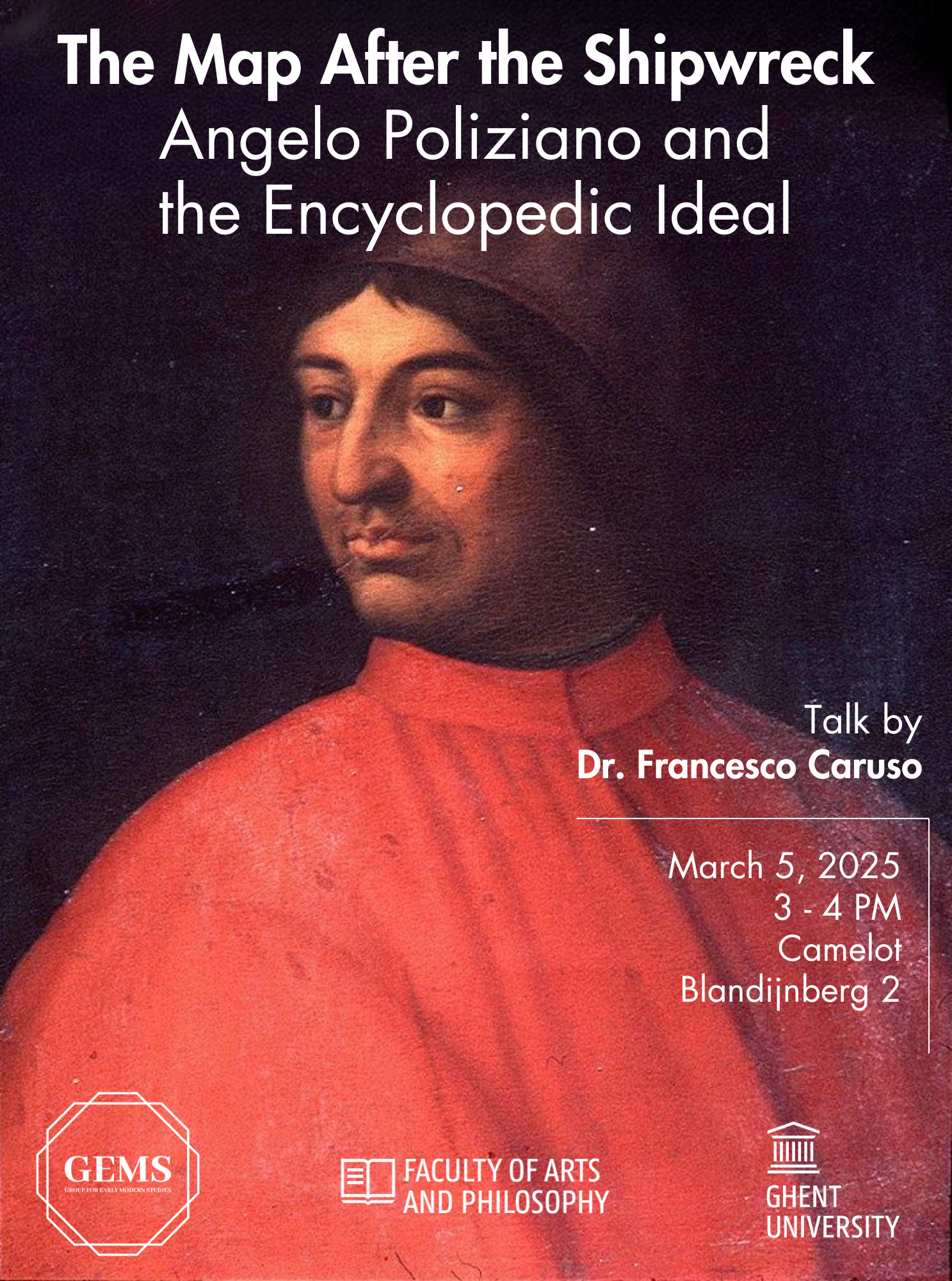
Architecture’s Mannerisms, or the Modern Path of an Unstylish Style
The department of Architecture and Urban Planning is hosting a lecture by Andrew Leach (University of Sydney) on the notion of mannerisms in 20th century architectural culture. This talk reports on a book begun at Harvard’s Center for Italian Renaissance Studies at the Villa I Tatti. It reflects on the work done by a modern and evolving concept of architectural mannerism for architecture itself. How has mannerism, it asks, shaped architectural values—directly and obliquely? What does it tell us about modern architecture’s relationship with history? Tracking the ebbs and flows of mannerism’s presence in architectural debate offers a way to think about the construction of architecture as a field apart, and as a profession subject to corruption.
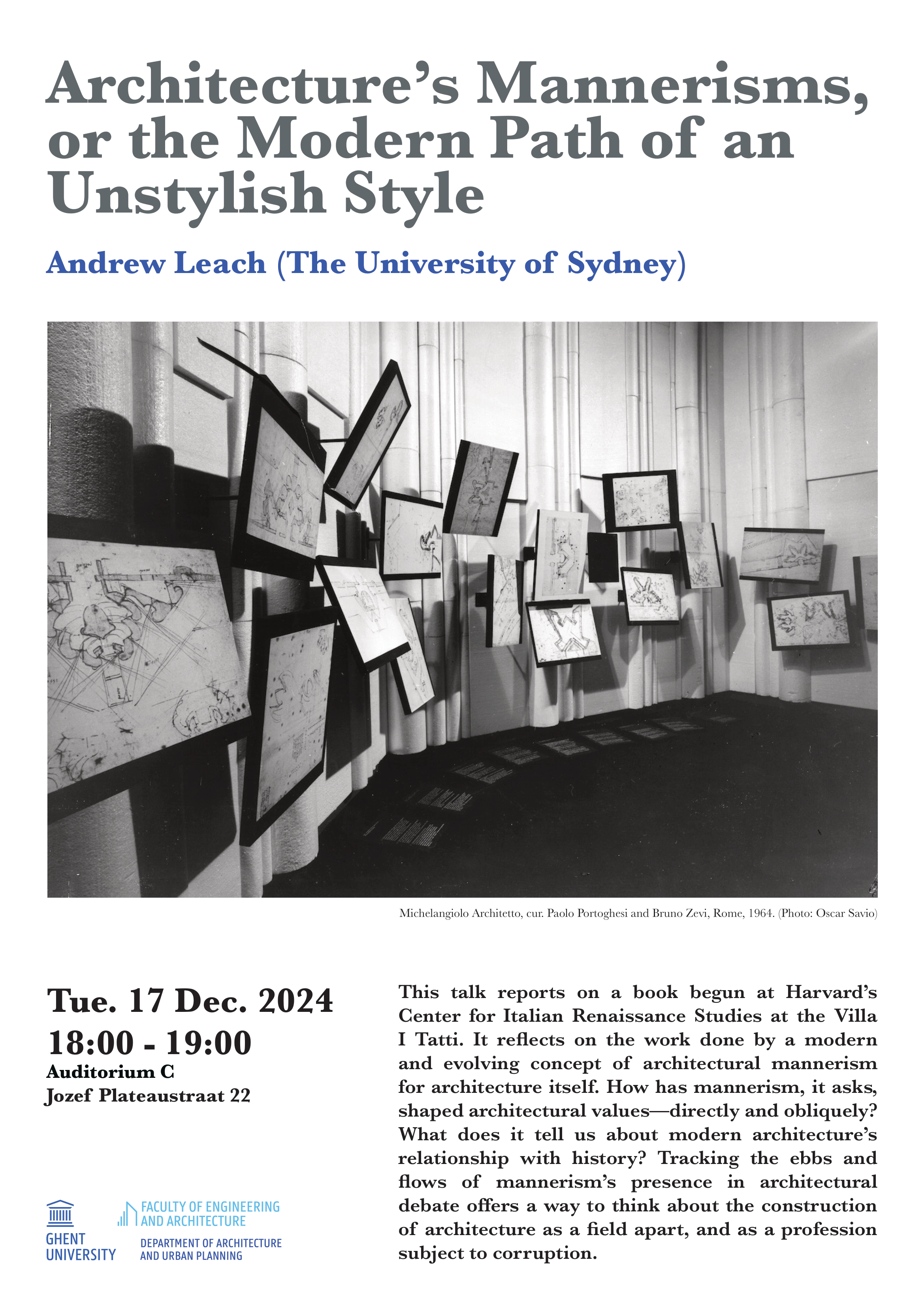
Middle East Studies Research Seminar Series – with Prof. Dr. Nir Shafir (UC – San Diego)
In the seventeenth century, Muslims in the Ottoman Empire became embroiled in a polarizing cultural war over the permissibility of everyday practices like worshipping at saints’ graves, smoking tobacco, and an odd medical procedure called “chickpea cauterization.” This talk traces this widespread religious and political polarization to the rise of a new “communication order,” focusing, in particular, on the advent of “pamphlets”: short, mobile, and polemical tracts, all copied by hand. The talk paints a new picture of the entire ecosystem of books in the manuscript culture of the early modern Ottoman Empire and how it fell into supposed disorder as middling readers stoked polemics, falsified authorship, and fashioned new reading publics.
contact: middleeast@ugent.be
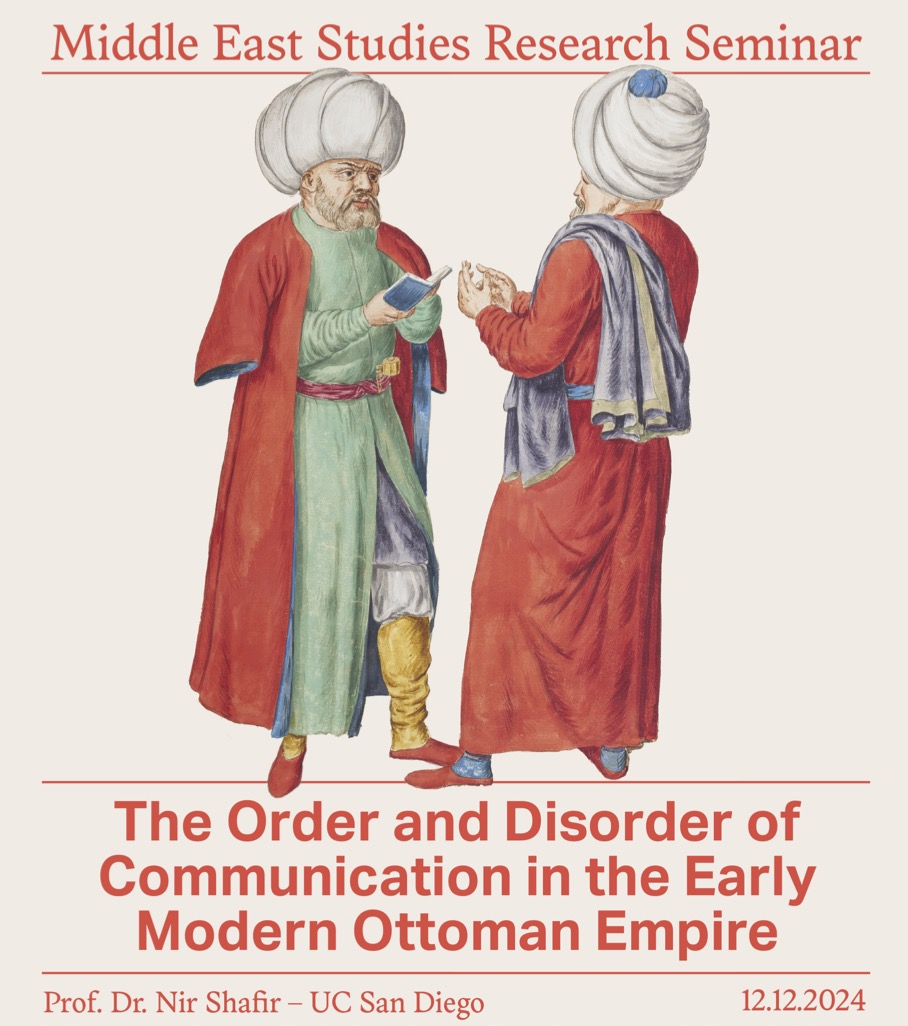
Seminarie ‘Verbeelding van verlangen in vroegmoderne Nederlandse komedies’
This event will be held in Dutch
Sara Troost, Wie nog lopen kon ging; wie dat niet meer kon, viel om (1768), via: https://id.rijksmuseum.nl/200310259
Op 7 januari 2025 organiseert de onderzoeksgroep Vensters van Verlangen: de verbeelding van consumptie in de komedie van de Lage Landen (1650-1725) in samenwerking met GEMS en Thalia een seminarie over de verbeelding van verlangen in komisch toneel in de zeventiende en achttiende eeuw. Vensters van Verlangen onderzoekt de representatie van consumptie en verlangen in vroegmoderne Nederlandse komedies. Kluchten en blijspelen vormen een vruchtbare bron voor het bestuderen van emoties en consumptie, omdat zij veelal handelen over herkenbare sociale omgevingen en kwesties en blijk geven van contemporaine morele en sociale waardeoordelen. In dit seminarie behandelen Estel van den Berg en Evi Dijcks de verbeelding van twee centrale verlangens: geldzucht en seksuele lust.
Geldzucht was een populair thema in kluchten en blijspelen in de vroegmoderne tijd en ging altijd samen met humor over klasse. Stereotype personages zoals de vrek en de sociale klimmer kwamen veelvoudig voor in komedies. Estel van den Berg presenteert aan de hand van een aantal scènes uit D’ingebeelde Ryke (1665) van Joost van Breen, De woekeraar (1702) van Abraham Alewijn en Quincampoix (1720) van Pieter Langendijk welke theatrale technieken werden ingezet om het verlangen naar rijkdom te verbeelden. Zij onderzoekt of rijkdom enkel een voorwaarde was om te kunnen consumeren, of dat het najagen van rijkdom werd gerepresenteerd als doel op zichzelf. Zij onderzoekt welke rol komedies hadden bij het distribueren van het verlangen naar rijkdom en wie in de zeventiende en achttiende eeuw mocht verlangen naar rijkdom.
Een ander geliefd onderwerp van toneelschrijvers was seks en seksueel verlangen. In kluchten en blijspelen leidt dat verlangen regelmatig tot overspel. Op het toneel worden vaak negatieve stereotype genderrollen getoond, waarmee de gebruikelijke hiërarchie tussen man en vrouw tijdelijk wordt omgekeerd. Het gebruik van humor biedt zo ook de mogelijkheid een alternatieve werkelijkheid te verbeelden, waarin meer subversieve ideeën de ruimte krijgen. Aan de hand van een tegendraadse lezing presenteert Evi Dijcks welke alternatieve denkbeelden rondom overspel op het vroegmoderne podium worden gerepresenteerd.
Na de presentaties is er ruimte voor vragen en discussie. Wie wil deelnemen aan het seminarie kan een e-mail sturen naar evi.dijcks@ugent.be.
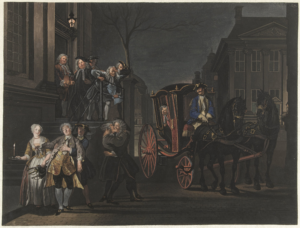
GEMS is organising a feedback session for FWO-applicants in the field of early modern studies*.
In this session, MA students applying in March 2025 to the FWO (or in the subsequent year, but who have already completed their application) will share their application with the attendees: PhD and senior researchers in the field of early modern studies, and other students. They will also briefly present their research in a 5-minute presentation (in English), followed by ample time for feedback and discussion.
The goal of this session is for students to receive useful feedback on their research and application from different experienced researchers to finetune their project before applying to the FWO.
The session will take place on the 14th of February from 2pm.
Student can register via this form or the QR-code.
If you have any questions, please contact Eru.Fevery@UGent.be or Joris.Verschelde@UGent.be
*Researchers focusing on adjacent time periods are also welcome!
